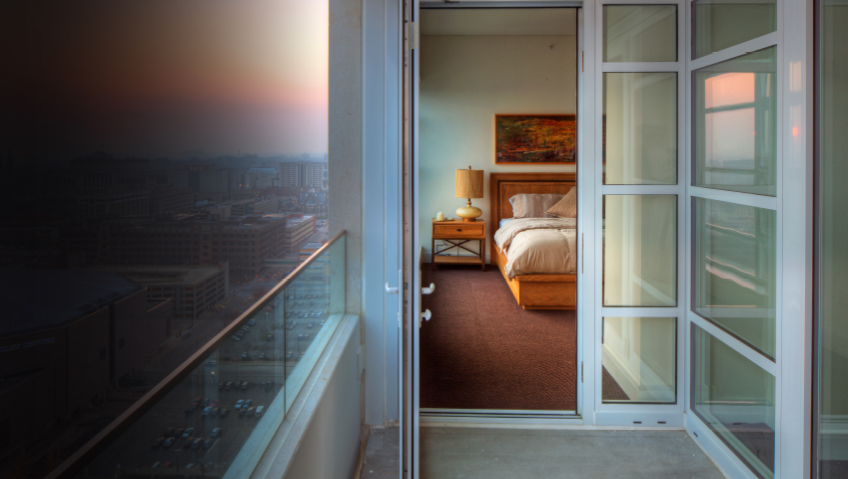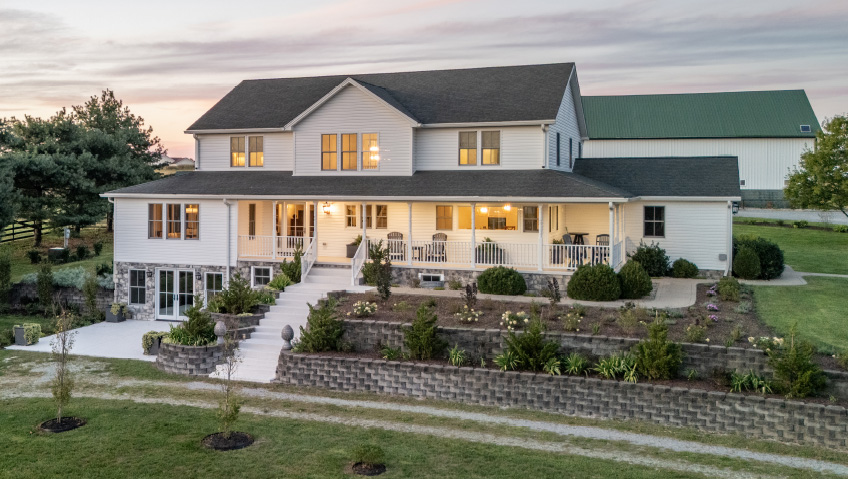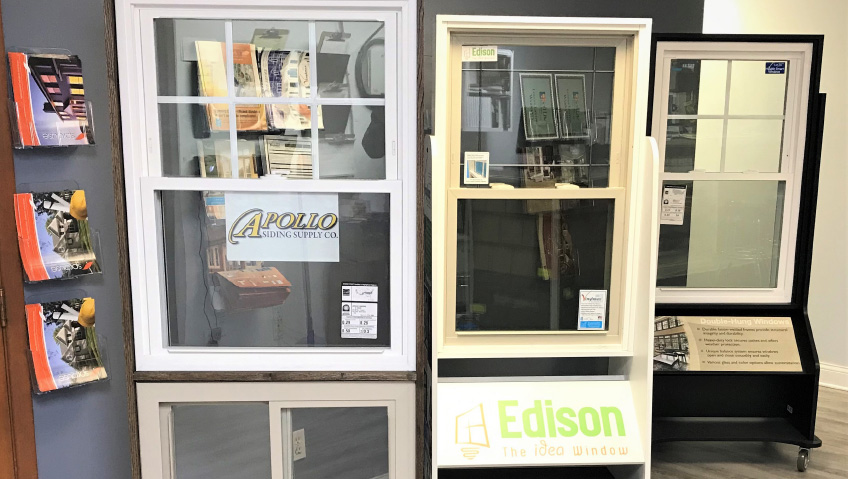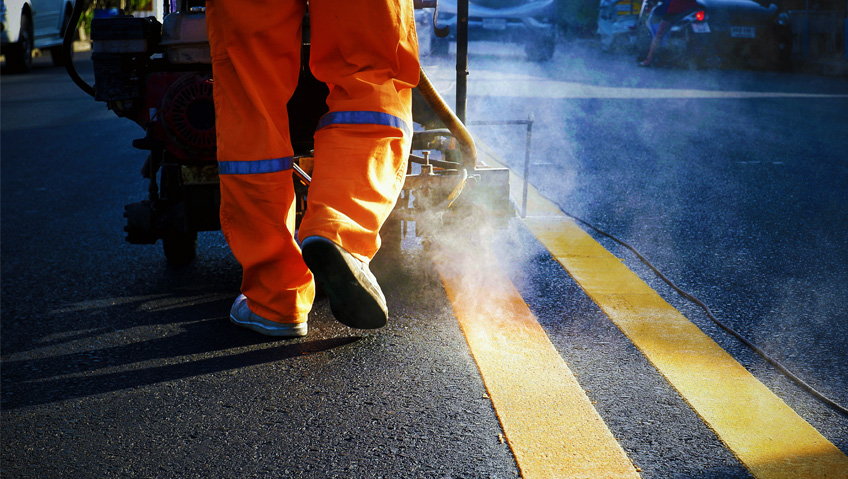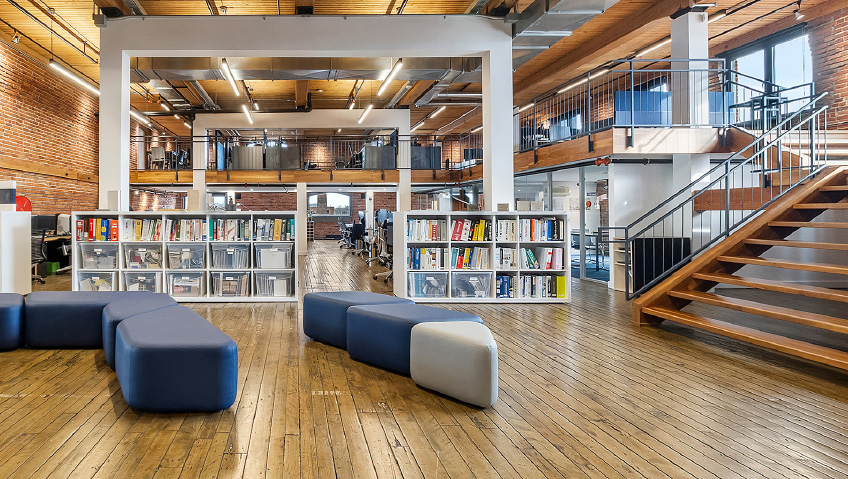Wall-tech Companies is a market leader when it comes to using prefabricated cold-formed steel (CFS) framing to create sturdy building exteriors. While the company, which is based near Madison, Wisconsin, offers other framing services, there has been a major push recently to grow the prefabricated CFS side of the business. Since it was profiled August 2021 in Construction in Focus, the company has also dramatically expanded its geographical footprint and its presence in the single-family home market.
Wall-tech Companies performs framing, prefabricated walls, structural and metal stud framing, and load-bearing steel framing. Other services range from drywall to rough carpentry, insulation and finish taping, air/vapor barrier systems, continuous insulation and sheathing, wood blocking, and temporary window enclosures. Cold-formed steel framing is designed, engineered, and prefabricated in-house, then assembled, shipped to jobsites, and installed.
Prefabricated steel frames offer multiple advantages over wood frames including lower cost, fire resistance, quick installation, and greater strength, says Wall-tech Chief Executive Officer Pete Braun.
“The biggest thing with prefabrication is speed; it’s much faster than traditional construction and less risky. You need far fewer individuals, too,” he adds.
Braun is a strong advocate for industrialized construction, a concept in which prefabrication figures prominently. “Construction has been around for thousands of years, and some aspects of it haven’t changed much. There’s a lot of masonry, a lot of concrete used,” he says.
Industrialized construction, by contrast, is all about “taking methods that have been applied to general manufacturing and applying that to construction,” he explains. “It’s about getting more automation in your production methods. You’re designing using AutoCAD and 3D modeling to get the project built on the computer, and then you’re applying that in a factory setting to build the products and streamline the process to get it installed onsite.”
Industrialized construction offers a “level of quality and consistency that, many times, we don’t see in traditional construction,” he adds, noting that it is all about “more detailed and better quality engineering, effectively managing the supply chain, and moving work offsite with the adoption of manufacturing-type production methods with prefabrication.”
Wall-tech Companies consists of a collection of firms. Prefabrication work is handled by a company called Wall-panel Prefab. An outfit called Wall-tech does installations while another company, HonorBuilt, sells pre-assembled home framing kits made of steel. HonorBuilt “is our way to branch into the single-family housing and duplex market,” explains Braun.
Kits offered by HonorBuilt come in various designs and contain all the essentials for building and assembling the steel shell of a home on a foundation or floor. The shell includes exterior / interior walls as well as roof framing. Wall panels come with openings for doors and windows. These home building kits are affordable, easy to erect, customizable, and can be delivered directly to clients.
On top of residential work, the company serves the commercial market, which includes hospitals, clinics, schools, and offices. Most of its work used to be centered in the Midwest. Thanks to strategic partnerships with outside firms, the team now takes on assignments from coast-to-coast. “We have partners in different parts of the country that will install our product,” notes Braun.
While the workload at Wall-tech Companies used to be split evenly between prefabricated and traditional construction, “it’s now closer to seventy percent on the prefabrication side,” he adds.
The growth of its prefabricated segment is predicated on the advantages of its product line; prefabricated CFS framing “doesn’t warp, split, rot, and doesn’t get eaten by termites or carpenter ants,” and is cheaper than concrete, says Braun. Steel offers the highest strength-to-weight ratio of any construction material, he adds.
CFS is also sustainable. “100 percent of our steel is recycled steel. Basically, automobiles and washing machines—anything built out of steel—gets melted down and put back into our product,” he notes. “With prefabrication, there’s a lot less waste. Everything is really precise. If you’ve been on a [traditional] construction site, there are piles and piles of garbage and waste that goes into landfill.”
While wood is still a hugely popular material for framing single-family homes, interest in cold-formed steel framing is growing. The company is getting more requests for its wares, which might have something to do with catastrophic weather events. Steel framed family homes are an appealing option in the face of hurricanes and other wind storms, Braun points out.
Since CFS framing can be erected quickly, it also reduces costs and keeps projects on schedule. By speeding up installation of the framing, “the masonry can get started sooner, the roofing can get started sooner, the windows can get installed.”
Braun cites a recent project Wall-tech Companies completed in Iowa to illustrate the point. CFS framing was prefabricated, shipped to the jobsite and installed. Further work on the building exterior ensued. Among other tasks, Wall-tech workers added rigid insulation to the exterior, did wood blocking, installed windows, and added air and vapor barriers. Air barriers prevent the flow of air into a building and can consist of plywood, polyethylene film, building wrap, or nylon film. Vapor barriers prevent the diffusion of moisture and consist of layers of impermeable material such as aluminum foil, metalized film, special coatings and paint, and more.
“Not only did the shell go up fast, the exterior walls all had rigid insulation. They had structural sheathing, air and vapor barriers, they had all the wood blocking for the windows… [This] allowed all the interior trades to start all that much faster because the building was essentially watertight when we were done,” states Braun.
The firm is currently working on a series of mid-rise apartments—residential buildings between four and twelve stories. “That’s kind of our sweet spot for apartments and hotels. We’re doing several twelve-story apartments right now.”
Regardless of the project involved, quality remains central to everything Wall-tech does. Maintaining high standards is a multi-step process that begins with “coming up with a good design, designing in 3D and AutoCAD first,” Braun says. Once framing products go into production, they are scrutinized on the plant floor by a quality-control expert. Products are examined at every step of the production process. Finally, “someone checks the final product as it leaves the factory. On some projects, we’re doing electrical and plumbing systems and drywall within our prefabricated systems. That’s where we have third-party inspectors before we close up the walls.”
Ahead of the curve as Wall-tech Companies might be, it does face certain challenges. Like many North American businesses, it is coping with a labor shortage as older workers reach retirement age and young people are not flocking to replace them.
Although labor woes and other issues were rampant prior to COVID, the pandemic “just amped everything up. We have more labor shortages, more material supply issues. It all gets much more complicated,” adds Braun. The industry-wide challenge of finding new workers might hit Wall-tech Companies with less impact, however. In addition to being a speedy process, installing CFS framing does not require a large crew.
“Many times, we can get a building erected in a couple of weeks that otherwise might take a couple of months and a lot more people to install with traditional construction methods,” Braun shares.
The team is also deeply committed to giving back to the broader community, with an emphasis on assisting with development projects in South America, Africa, and the Caribbean.
“We’ve been approached by several Caribbean contractors,” says Braun. “We can build seismic and hurricane designs into our systems; we can build prefabricated solutions with hurricane and seismic designs. We get calls asking how we could help individuals in other parts of the world by bringing in industrialized construction methods like prefabrication into their local market… There’s a recognition that there is a massive housing shortage [globally].”
One thing that has not changed since we previously spoke is the way Wall-tech Companies promotes itself. The company has a website and posts to YouTube, but otherwise does not aggressively engage in marketing. Rather, the company takes advantage of “word of mouth and recommendations from other developers,” for new business, says Braun.
Moving forward, he forecasts that the company will put even more emphasis on prefabrication work. To drive growth in this segment, Wall-tech works hard to educate potential clients on the benefits of its products.
“Customers might not be aware of everything you can do with prefabrication. So getting that message out to architects, builders, developers… There are a lot of people in the industry that just don’t know how you can use prefabrication with cold-formed steel framing.”

